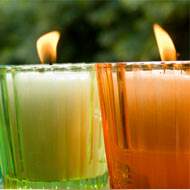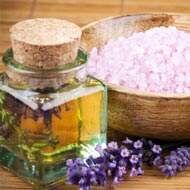Candles Fragrance: A Health Hazard
Are the fragrances used in soy candles hazardous to your health? Not necessarily. As with any product it depends on whether or not the fragrances are natural or synthetic. Synthetic fragrances can be very hazardous to your health. They can cause problems for people with allergies and asthma. Some have even been linked to cancer. This is because some contain phthalates.
These chemicals have been linked to disturbances of the hormonal system and other health issues.
The process of burning a candle can also release little amounts of acetaldehyde, formaldehyde, and naphthalene. These chemicals are what leave the black deposits of residue.
Soy candles that are made from non-GMO soybeans and use natural fragrances are not considered harmful. Some people, however, are allergic to soy products. This has to be taken into consideration when using soy candles. As with any product, there are going to be some people who cannot use it. This doesn't necessarily mean it's harmful; just that this person is sensitive to it.
Candles that use essential oils and other natural fragrances are considered the best. Soy candles can also burn cleaner and longer than other candles.
Some soy candles are not so healthy for your body. They are not made with non-GMO soybeans. As with any product that is used for humans, if the base ingredients are contaminated with pesticides or other chemicals, the end product will be harmful to the user.
Many paraffin based candles have petroleum in them. This leaves the candle soot that is so unappealing on a candle. These candles can be harmful to your health. Soy based candles are vegetable derived candles and don't use petroleum.
Becoming an informed consumer is essential for making sure that the products you buy and the products you consume are not harmful to your health. Read the ingredients. If the ingredients are written in scientific jargon, look up the terms so you know what they really are. For instance jojoba oil may be listed as Simmondsia chinensis. Just because you see long scientific terms used in the ingredients list doesn't necessarily mean that all the ingredients have to be god or bad for you.
Don't let someone sell you something because they claim that it is all natural or organic. All natural and organic can sometimes still be bad for your health. Make sure you know and understand what the ingredients are and how they can affect you as an individual.
Read more articles from the Aromatherapy Essential Oil Category.

 Find Pose
Find Pose

